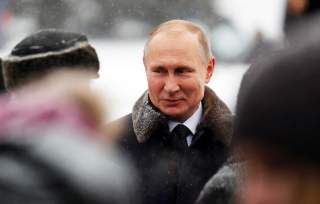The (Former) Soviet Empire Strikes Back
Russia’s meddling in the U.S. political system is part of a broader global campaign to undermine what the Kremlin sees as a Western-dominated international order.
Thus, the United States should not conflate Russian activities with success—not all of its actions will yield the results Moscow wants or damage important western interests. When this is the case, the West should be careful to avoid overreacting, because doing so only builds up Putin in the eyes of the Russian public and confers the global status he craves, handing him cheap victories.
The Kremlin will not abandon its global strategy and when Russian activities threaten core western interests and values, such as its attempts to undermine democratic processes and transatlantic security and economic institutions, the United States and its allies should seek to roll back, contain or minimize the impact to these interests. But the heart of the U.S. response to Russia’s global activities should revolve around more targeted sanctions and sharing information about what Russia is doing in allied and friendly countries and exchanging best practices for shoring up the resilience of their societies, political institutions, financial sector and cyber infrastructure. It would also highlight Russian failures and the tremendous costs to the Russian state of its activities. This is the broad approach the West took to similar Soviet activities during the Cold War. It worked then and it can work again as long as the United States and its partners remember their fundamental strengths and values.
Richard Sokolsky, currently a nonresident senior fellow at the Carnegie Endowment for International Peace, served in the State Department for thirty-seven years.
Paul Stronski is a senior fellow at Carnegie and a former NSC director for Russia and Central Asia.
Image: Reuters
Recommended:
Why North Korea's Air Force is Total Junk

